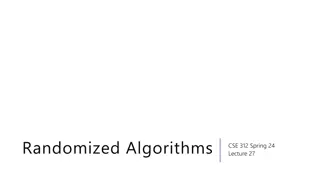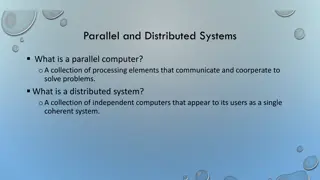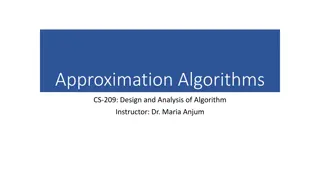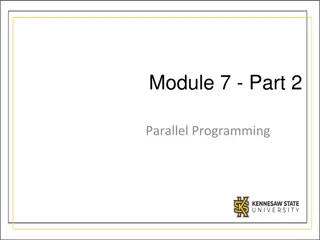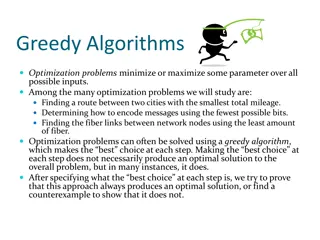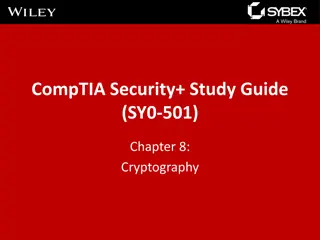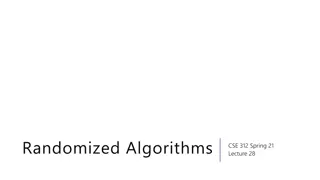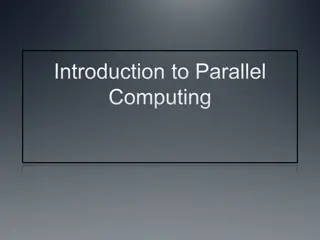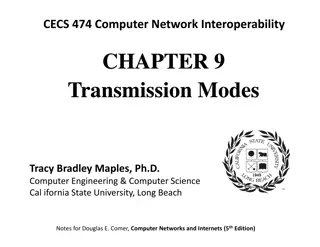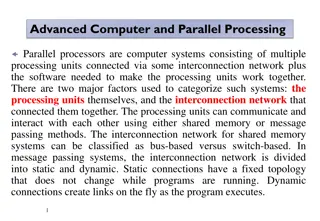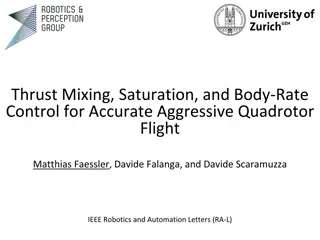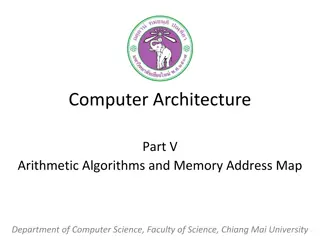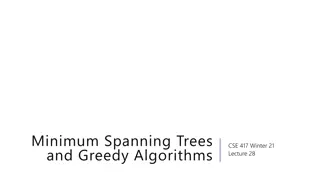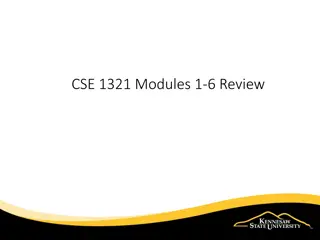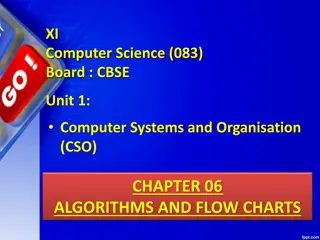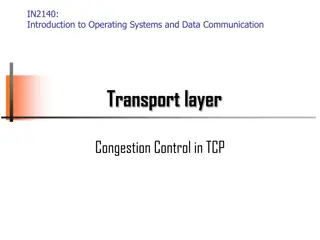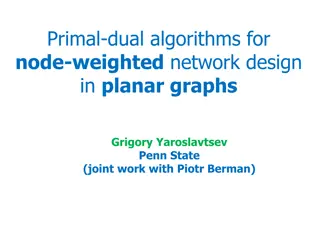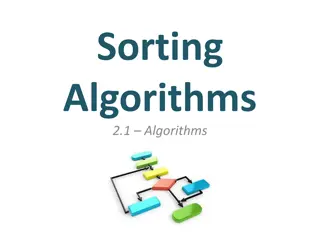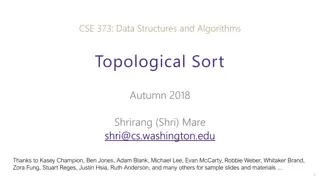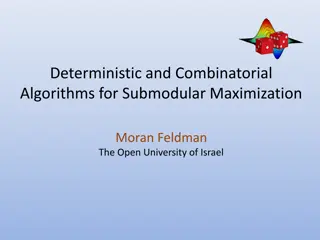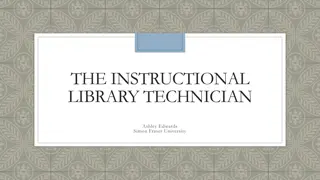Introduction to Thrust Parallel Algorithms Library
Thrust is a high-level parallel algorithms library, providing a performance-portable abstraction layer for programming with CUDA. It offers ease of use, distributed with the CUDA Toolkit, and features like host_vector, device_vector, algorithm selection, and memory management. With a large set of algorithms and variations, it supports flexible user-defined types and operators for efficient parallel processing.
Download Presentation

Please find below an Image/Link to download the presentation.
The content on the website is provided AS IS for your information and personal use only. It may not be sold, licensed, or shared on other websites without obtaining consent from the author. Download presentation by click this link. If you encounter any issues during the download, it is possible that the publisher has removed the file from their server.
E N D
Presentation Transcript
An Introduction to the Thrust Parallel Algorithms Library
What is Thrust? High-Level Parallel Algorithms Library Parallel Analog of the C++ Standard Template Library (STL) Performance-Portable Abstraction Layer Productive way to program CUDA
Example #include <thrust/host_vector.h> #include <thrust/device_vector.h> #include <thrust/sort.h> #include <cstdlib> int main(void) { // generate 32M random numbers on the host thrust::host_vector<int> h_vec(32 << 20); thrust::generate(h_vec.begin(), h_vec.end(), rand); // transfer data to the device thrust::device_vector<int> d_vec = h_vec; // sort data on the device thrust::sort(d_vec.begin(), d_vec.end()); // transfer data back to host thrust::copy(d_vec.begin(), d_vec.end(), h_vec.begin()); return 0; }
Easy to Use Distributed with CUDA Toolkit Header-only library Architecture agnostic Just compile and run! $ nvcc -O2 -arch=sm_20 program.cu -o program
Productivity Containers host_vector device_vector // allocate host vector with two elements thrust::host_vector<int> h_vec(2); // copy host data to device memory thrust::device_vector<int> d_vec = h_vec; // write device values from the host d_vec[0] = 27; d_vec[1] = 13; Memory Mangement Allocation Transfers // read device values from the host int sum = d_vec[0] + d_vec[1]; // invoke algorithm on device thrust::sort(d_vec.begin(), d_vec.end()); Algorithm Selection Location is implicit // memory automatically released
Productivity Large set of algorithms ~75 functions ~125 variations Algorithm Description reduce Sum of a sequence find First position of a value in a sequence mismatch First position where two sequences differ inner_product Dot product of two sequences equal Whether two sequences are equal Flexible User-defined types User-defined operators min_element Position of the smallest value count Number of instances of a value is_sorted Whether sequence is in sorted order transform_reduce Sum of transformed sequence
Interoperability CUDA C/C++ CUBLAS, CUFFT, NPP OpenMP TBB Thrust C/C++ STL CUDA Fortran
Portability Support for CUDA, TBB and OpenMP Just recompile! nvcc -DTHRUST_DEVICE_SYSTEM=THRUST_HOST_SYSTEM_OMP GeForce GTX 280 NVIDA GeForce GTX 580 Core2 Quad Q6600 Intel Core i7 2600K $ time ./monte_carlo pi is approximately 3.14159 $ time ./monte_carlo pi is approximately 3.14159 real user sys 0m0.116s 0m6.190s 0m6.052s real user sys 0m0.020s 1m26.217s 11m28.383s
Backend System Options Host Systems THRUST_HOST_SYSTEM_CPP THRUST_HOST_SYSTEM_OMP THRUST_HOST_SYSTEM_TBB Device Systems THRUST_DEVICE_SYSTEM_CUDA THRUST_DEVICE_SYSTEM_OMP THRUST_DEVICE_SYSTEM_TBB
Multiple Backend Systems Mix different backends freely within the same app thrust::omp::vector<float> my_omp_vec(100); thrust::cuda::vector<float> my_cuda_vec(100); ... // reduce in parallel on the CPU thrust::reduce(my_omp_vec.begin(), my_omp_vec.end()); // sort in parallel on the GPU thrust::sort(my_cuda_vec.begin(), my_cuda_vec.end());
Potential Workflow Implement Application with Thrust Thrust Application Implementation Profile Application Profile Application Bottleneck Specialize Components as Necessary Specialize Components Optimized Code
Performance Portability Thrust CUDA OpenMP Transform Scan Sort Reduce Transform Scan Sort Reduce Sort Radix Sort Merge Sort G80 GT200 Fermi G80 GT200 Fermi Kepler Kepler
Extensibility Customize temporary allocation Create new backend systems Modify algorithm behavior New in Thrust v1.6
Robustness Reliable Supports all CUDA-capable GPUs Well-tested ~850 unit tests run daily Robust Handles many pathological use cases
Openness thrust.github.com Open Source Software Apache License Hosted on GitHub Welcome to Suggestions Criticism Bug Reports Contributions
Resources thrust.github.com Documentation Examples Mailing List Webinars Publications



